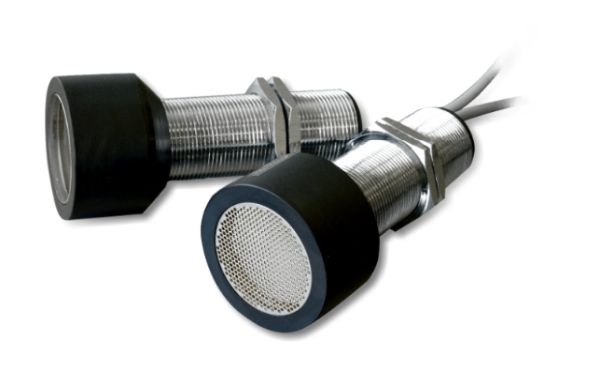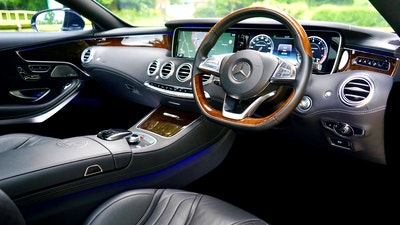Car Buying vs Car Leasing – Which is the Better Option?

Personal car leasing is also known as personal contract hire. Whatever you personally call it, it’s a very popular way of getting to drive a car in many nations.
Even in the United States, a quarter of all cars are leased. Leasing a car is growing in popularity in the United Kingdom, but there are still many drivers who might stand to benefit from leasing a car that is still getting car loans, doing either a personal contract purchase (PCP) or a hire purchase (HP) agreement to get their vehicle.
A big reason behind this reluctance is typically a general lack of knowledge regarding the benefits that leasing provides, as well as confusion about the terminology involved.
In this article, we’re going to explain the process of leasing a personal car and go over how it might prove ideal for you to choose.
Lease Versus Buy
An informed driver is usually going to score a better deal than someone not as educated about their options and choices. Thorough and in-depth preparation pays off when facing any big financial decision, and so a lot of folks put a lot of time and work into things like buying a house or choosing a useful pension product.
However, many drivers wind up letting things like make and model take priority over the form of car financing they choose. That’s not to say it’s not important to pick out a good make and model, as this is a crucial and even enjoyable aspect for many drivers. However, knowing just what kind of car finance is best for you has a substantial influence on the recurring costs of driving your new vehicle.
So whether you have a bad credit car finance or good credit you may still want to finance it versus lease because the leasing cost can still be higher than a bad credit situation.
When you’re more informed on a particular subject, then your enhanced knowledge boosts your chances of finding better deals or negotiating better agreement terms.
Costs that are associated with personal transportation, be it leasing, ownership, or public transit, are a big chunk of your monthly budget. You have more power over cost control if you’re in a position of being able to properly estimate those costs.
The Advantages Personal Car Leasing Offers You:
Before looking at the primary advantages of leasing a car, Intelligent Car Leasing suggests that it’s worth keeping in mind a famous saying from J. Paul Getty, a billionaire, and oil tycoon.
He said that if something appreciates, you should buy it, but if it instead depreciates, you should then lease it. That saying sums up the primary advantage of car leasing simply and beautifully.
A car isn’t a house. A home typically appreciates in its value after you buy it, but any car you drive away in starts losing value immediately.
Taking out a car finance agreement or car loan simply means that you are going to pay a set monthly amount for a thing losing value rather than gaining it. You’re actually buying something that depreciates, not just with every mile you put on it, but even when it just sits there outside your home.
Leasing is something different for drivers. Rather than owning their vehicle, a driver pays monthly amounts for using the vehicle through a set time period, often two or three years. When the agreement ends, the leasing company gets the car back.
Let’s look at some primary advantages of leasing a car.
Your monthly repayments are often going to be lower than car loan repayments. In many lease agreements, the necessary deposit is small, if any at all. They’re usually just three months worth of payments.
A major allure of leasing a car is getting to drive a car that might be otherwise out of your financial reach if you wanted to buy it. In many cases, the car is under manufacturer warranty for the duration of the lease, and many maintenance costs are also covered.
The lease usually also includes the road tax. There are no car loans, capital outlay, or huge costs up-front. You get to enjoy fixed-price motoring with steady costs all throughout your lease.
If you keep leasing, you get to drive a new car every few years, always enjoying the performance advancements, fuel economy, and safety that newer cars have to offer.
What Are Good Cars To Lease?
Many factors determine what cars are good to lease. The broader economy, the residual value of a car, seasonal factors, and current supply and demand in the vehicle market all prove to be factors you should be mindful of, as they impact the leasing and contract hire markets of the UK.
The personal lease market has many popular makes and models available, but a general rule you should go by is that models that depreciate slower are the most attractive choices across the market spectrum.
That’s the cars that lose as little of their value as possible over the course of a lease agreement term. Historically, that’s meant that German manufacturers prove popular.
These are names like Mercedez-Benz, BMW, Audi, and Volkswagen, although any actual model that retains its value is going to be priced competitively.
What is a lease payment made up of?
A select few big leasing companies supply most of the UK’s contract leasing and hire market with cars and vehicles.
These businesses buy cars by the hundreds of thousands directly from manufacturers each and every year, and the volume puts them in a position to negotiate huge discounts.
A car’s lease price is formed from the difference between the projected residual value and the initial purchase price, with factors like condition, VAT, profit element, and mileage taken into account according to tax experts VATGlobal. Residual value can go higher if the car has lower mileage and loses less money, so it might cost less to lease out.
The Main Options For Car Finance:
A standard hire purchase (HP) agreement includes a big deposit factor, often ranging from 20 percent to as much as half. The balance of the price of the car is then paid off over the HP agreement lifespan.
When the agreement ends, the car is then the driver’s property. On the other hand, the car is now used and worth a lot less than what the original purchase price was, thanks to depreciation.
The personal contract purchase or PCP deal is a rather new option for financing a car. This is a case where a driver has the option of putting down lower initial deposits, as compared to what HP agreements require, and still paying lower monthly repayments.
The driver has a number of options at the end of such an agreement. One is handing in the car back for free, although this is subject to condition and mileage. The second is taking ownership of the car through payment of the final balloon amount. Finally, the driver could just take get a new car with a fresh PCP agreement.
Personal car leasing often has the very lowest deposit among the three primary types of finance, and this gets followed by a fixed set of monthly payments based largely on the expected residual value at the end of the lease. The more the residual value is, the lower your monthly payment is going to be.
Busting Up Jargon:
Here are some useful terms used already in this article.
Depreciation: This is the reduction in the value of the car, caused by factors such as condition, mileage, and age. A car sees its greatest depreciation in the first year off the lot. The car’s make and model also have a tremendous influence on depreciation value.
Residual Value: This term is a reference to the anticipated or predicted value of your vehicle when you get to the conclusion of your lease agreement. This amount proves crucial, considering that your monthly repayments are going to be based on any difference between a listed selling price and the expected residual value.
Have you weighed the options between a lease and buying a car? I would like to hear what you think below in the comments.
Cheers!






